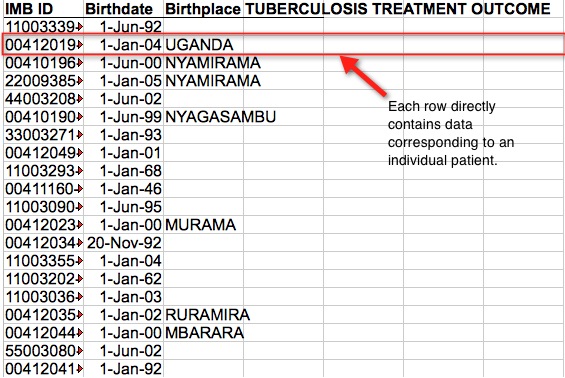Overview
The Reporting Module was designed to provide a feature-rich and user-friendly web interface for managing reports within OpenMRS. In addition, the Reporting Module provides a flexible and extensible API that module developers can develop against to build their own reports and tools. The core idea behind the Reporting Module is to provide a solid foundation so that other developers can use the framework to implement new features.
Report Types
There are many different types of reports but these can be categorized into two main types.
Row-Per-Domain Object Reports
These reports export data in a multi-column format where each row represents the object and each column represents an attribute associated with the object. Currently, only Row-Per-Patient reports are natively supported but more objects (for example Row-Per-Encounter and Row-Per-Program) are in planning. For information on how to build Row-Per-Patient reports, see Building Row-Per-Patient Reports in OpenMRS or Building Reports for Developers. |
|
Indicator Reports
Indicator reports aggregate groups of people for each question. Below is a Period Indicator Report. Each row contains a question and the corresponding column contains the answer. The answer to each question is a link to the members of the group that fulfills the question. |
|
Limitations
Currently, reporting compatibility is being used to bridge the gap between the old and new (e.g., combining cohort builder and data exports). This reporting module has many core features for evaluating parts of a report but does not have a good UI for designing a full report. Cohort builder is best for adhoc querying, though for unsupported data entry, you must use the cohort query editor in the reporting module. Data exports can only be designed/exported using reporting compatibility. This module contains a feature that allows you to define simple dataset definitions, such as a SQL-based dataset, but other definitions are not available.

